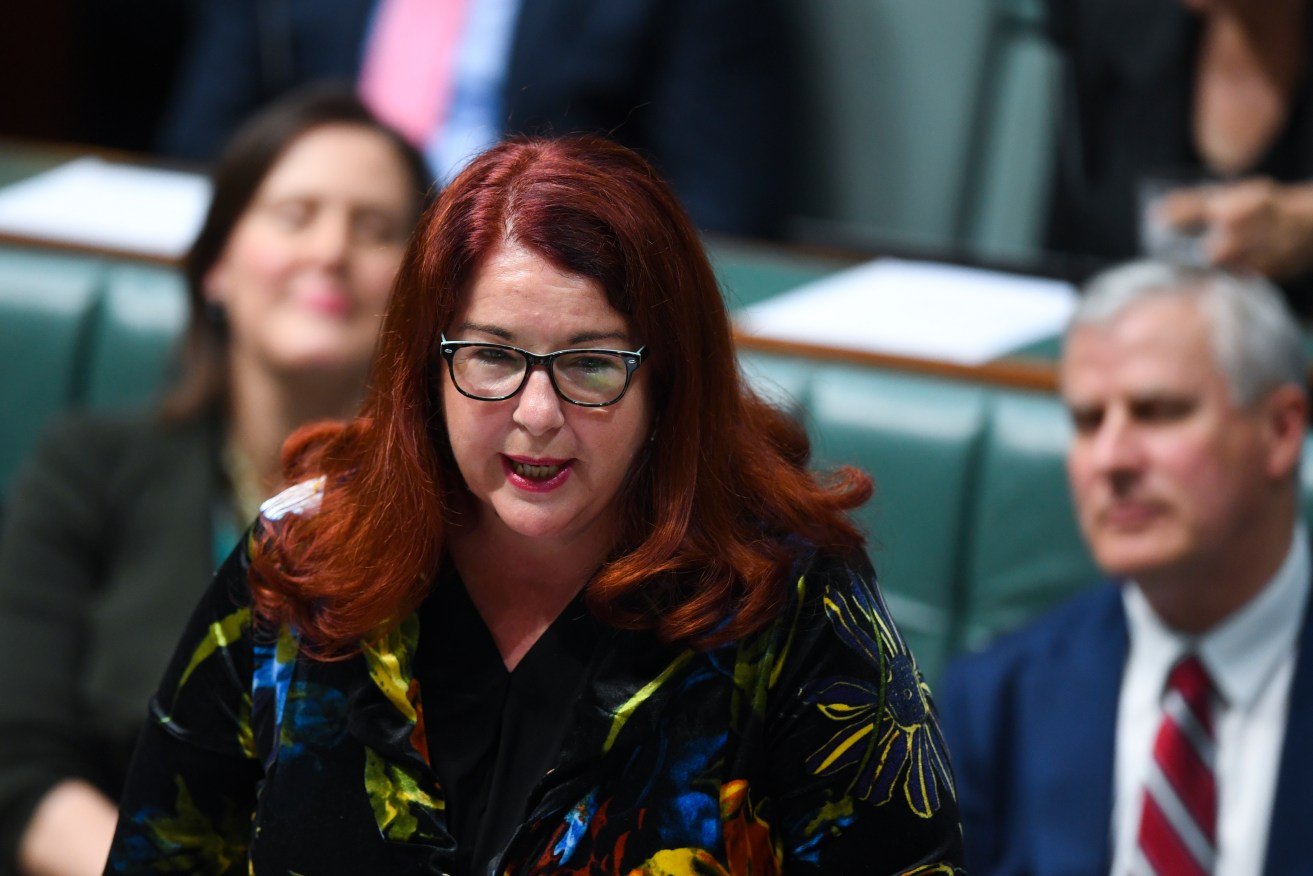Phasing out coal “a long bow”, says Australia’s environment minister
Scientists are “drawing a very long bow” to say coal should be phased out by 2050, the federal environment minister says. Melissa Price’s comments were in response to a major United Nations report which calls for drastic changes across the globe to prevent world temperatures rising by two degrees Celsius.

Australian Environment Minister Melissa Price: "Coal does form a very important part of the Australian energy mix..." Photo: AAP/Lukas Coch
“Every year there’s new technology with respect to coal and what it’s contribution is to emissions,” Price told ABC radio today.
“So I think to say it’s got to be phased out by 2050 is drawing a very long bow.”
Price concedes she hasn’t read the report in its entirety, but says the Morrison government will look at it.
“Coal does form a very important part of the Australian energy mix and we make no apology for the fact our focus at the moment is getting electricity prices down,” she said.
The Morrison government is “very comfortable” with its environmental policies and would meet its emissions reduction targets, she added.
Greenhouse gas emissions climbed 1.3 per cent to their highest quarterly levels in eight years, the latest data revealed, which Price says was largely driven by increased volumes of LNG production.
“The most important thing in that report is that electricity emissions have declined by 13.9 per cent in the year to March 2018,” she said.
UN Secretary-General Antonio Guterres says the climate report is an “ear-splitting wake-up call to the world” and that half a degree of warming will make a significant difference to the planet.
“We see the consequences all around us – more extreme weather, rising sea levels, diminishing Arctic sea ice,” he said in a statement on Tuesday.
“We need to end deforestation and plant billions of trees, drastically reduce the use of fossil fuels and phase out coal by 2050, ramp up installation of wind and solar power, invest in climate-friendly sustainable agriculture; and consider new technologies such as carbon capture and storage.”
Guterres says it is still possible to limit warming to 1.5C, but it would require urgent and far more ambitious action to cut emissions in half by 2030 and reach net zero emissions by 2050.
The Great Barrier Reef could cease to exist according to the report, with a temperature increase of 1.5C predicted to kill 70-90 per cent of coral reefs.
If temperatures go up by 2C, then almost all coral reefs in the world would start dying off.
The Coalition Government will not renew or replace the Renewable Energy Target when it lapses in 2020.
Labor frontbencher Penny Wong said climate policy had stagnated due to internal fighting within the Coalition.
Key findings of the UN Intergovernmental Panel on Climate Change report
IF TEMPERATURES RISE BY 2C RATHER THAN 1.5C
– Global sea levels will be 10cm higher by 2100
– The Arctic Ocean will be free of sea ice in summer once per decade, not once per century
– More than 99 per cent of coral reefs will decline, compared to 70 to 90 per cent
HOW TO LIMIT GLOBAL WARMING TO 1.5C
– The report warns the world is well off track to meet a 1.5C limit
– Rapid and far-reaching transitions are needed in land, energy, industry, buildings, transport and cities
– Global net human-caused emissions of carbon dioxide (CO2) to fall by about 45 per cent from 2010 levels by 2030
– Any remaining CO2 emissions must be balanced by removing CO2 from the atmosphere
– Renewables should supply 70 to 80 per cent of electricity by 2050
– AAP




